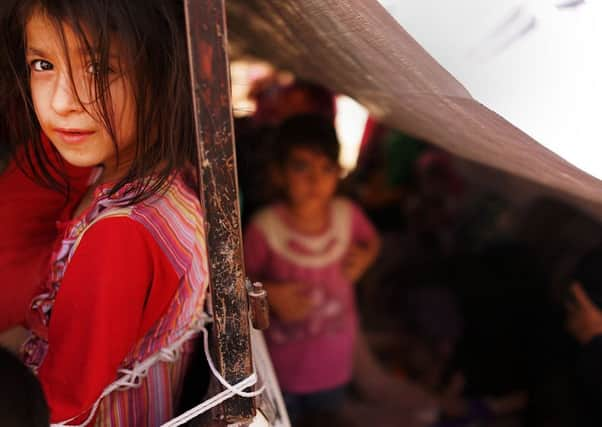Iraq: Fightback against Isis ‘to begin next week’


Prime minister Nouri al-Maliki’s Shiite-led political bloc won the most seats in elections on 30 April – 92 out of 328 – but he needs support from other parties for a majority that would give him the right to govern.
An increasing number of critics, both in Iraq and abroad, want him to step down, saying his failure to promote national reconciliation fuelled the insurgency by needlessly angering minority Sunnis.
Advertisement
Hide AdAdvertisement
Hide AdVice-president Khudeir al-Khuzaie yesterday ordered the new parliament to hold its first session on Tuesday, to be chaired by the eldest member.
On a visit to Iraq, Foreign Secretary William Hague urged the country’s leaders to put aside their differences for the good of the nation, while in Paris, US secretary of state John Kerry met the Americans’ main Sunni state allies in the Middle East to consider how to confront the growing turmoil.
Compounding the pressure on Mr Maliki, powerful Shiite cleric Muqtada al-Sadr made a televised statement calling for a national unity government of “new faces” representing all groups.
Mr Sadr, whose followers fought fiercely against both US forces and Sunni extremists nearly a decade ago, also vowed to “shake the ground” under the feet of the al-Qaeda breakaway group that has threatened to advance toward Baghdad and holy Shiite cities in the south.
Mr Maliki has faced pressure, including from his former Shiite allies, to step down and let an interim government provide leadership until a more permanent solution can be found. He has insisted the constitutional process must be allowed to proceed.
Constitutionally, the next step would be to elect a speaker and two deputies, then within 30 days choose a president who would have 15 days to ask the largest bloc to name a prime minister and form a government. The prime minister-designate would have 30 days to present his cabinet to parliament.
Mr Hague, meeting Mr Maliki in Baghdad, said: “We believe the urgent priority must be to form an inclusive government … that can command the support of all Iraqis and work to stop terrorists and their terrible crimes.”
His trip follows a visit by Mr Kerry, who earlier this week delivered a similar message and warned that Washington was prepared to take military action.
Advertisement
Hide AdAdvertisement
Hide AdThe intense diplomatic push highlights growing international concern over the gains by fighters led by the Islamic State of Iraq and the Levant (Isis), the Sunni extremist group that has seized large swathes of Iraq and seeks to carve out a purist Islamic enclave across both sides of the Syria-Iraq border.
In Paris, Mr Kerry said his talks with foreign ministers from Jordan, Saudi Arabia and the United Arab Emirates would touch on a “number of critical issues”.
It is feared the insurgency may spark an outright civil war in Iraq – joining the continuing three-year conflict in Syria – if Isis’s might is not curbed.
Authorities yesterday found the bodies of eight men who had been shot in Mahmoudiya, about 20 miles south of Baghdad. They had no ID cards on them, reminiscent of the past when Shiite and Sunni extremists would take their victims’ identification to dehumanise those killed, or as trophies.
Shortly before sunset, a bomb exploded near a clothing shop in Baghdad’s Shiite neighbourhood of Khazimiyah, killing seven and wounding 24 others.
In northern Iraq, an insurgent artillery offensive against Christian villages 45 miles from the frontier of the self-ruled Kurdish region sent thousands fleeing from their homes, seeking sanctuary in the Kurdish enclave.
While many villagers appeared to have been granted access, hundreds of Shiite refugees were facing delays at a checkpoint because they lacked sponsors on the other side.